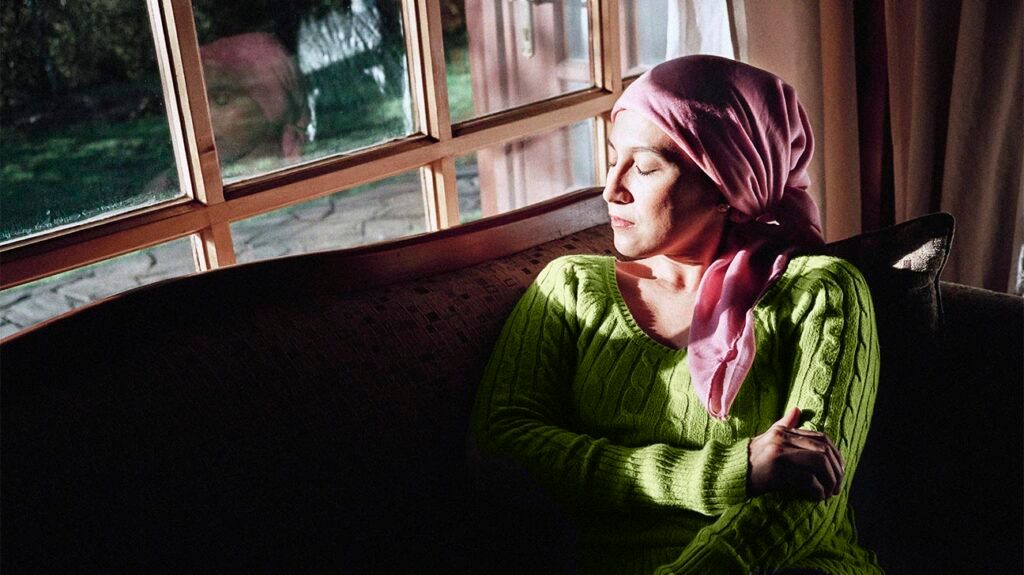Ovarian cancer recurrence is when the disease returns after being undetectable. Many people with ovarian cancer experience a recurrence at some point.
Learning that cancer has come back can be emotionally and mentally difficult. However, doctors know that recurrence is common with ovarian cancer and have procedures and treatments to manage it.
This article will cover some facts about recurrence, how it affects a person’s outlook, and the treatments available.

Overall, the recurrence rate for ovarian cancer is around 80%. However, it is important to note that this varies by stage and cancer type.
Cancer is more likely to recur if the disease was fast-growing or had reached an advanced stage before a person received their diagnosis. For people who receive treatment in the early stages of cancer development, the recurrence rate is
Ovarian cancer can be hard to detect in the early stages, as it may not cause any symptoms. This means diagnosis does not occur until later on in many cases. When this happens, the recurrence rate is 80%.
Cancer recurrence can happen anywhere in the body. Local recurrence is when it recurs in the same place as before, while regional is when it recurs in the nearby structures or lymph nodes.
Distant recurrence means the cancer is in a new part of the body entirely. Ovarian cancer can also recur in multiple places at once.
Recurrence can technically happen at any time, from weeks after treatment to years later.
In cases of highly chemotherapy-resistant cancer, it can recur during the weeks following treatment. Cancers that are highly sensitive to chemotherapy may disappear for years at a time before recurring.
For most people, recurrence happens after just over a year. About 80% of people with ovarian cancer experience a recurrence within 18 months of treatment.
The symptoms of ovarian cancer recurrence can be the same as the original cancer symptoms. They may include:
- unexplained vaginal bleeding
- unusual vaginal discharge
- pain or pressure in the pelvis or lower abdomen
- an unusually frequent or urgent urge to urinate
- quickly feeling full when eating, or having difficulty eating
- bloating
If cancer recurs in a new area of the body, a person may experience signs and symptoms in that area as well as general cancer symptoms. Some of the most common symptoms include:
- fatigue that does not improve with rest
- gaining or losing more than
10 pounds of weight for no known reason - problems with eating, such as lack of hunger, difficulty swallowing, stomach pain, or vomiting
- lumps on any part of the body
- pain for no known reason
- skin changes, such as a new mole or change in an existing mole, a lump that is scaly or bleeds, a sore that does not heal, or yellowing or discolored skin
When treating ovarian cancer recurrence, doctors usually focus on shrinking and managing tumors as much as possible. The treatments they choose depend on several factors, including:
- the type and stage of ovarian cancer
- when it recurs
- where it recurs
- what treatment the person has already received
- the overall health of the individual
- what the person wants
The treatments that doctors can offer for ovarian cancer recurrence include the below.
Chemotherapy
Generally, chemotherapy is the first treatment doctors use for ovarian cancer recurrence.
When a doctor first diagnoses someone with cancer, they will usually prescribe a drug called carboplatin. If a person’s cancer recurs
For people with platinum-sensitive cancer, a doctor will often prescribe carboplatin again, potentially in combination with another chemotherapy drug.
For those with platinum-resistant cancer, a doctor will usually prescribe a different chemotherapy drug. These could include paclitaxel, liposomal doxorubicin, or gemcitabine.
Surgery
Sometimes, doctors will perform surgery to treat ovarian cancer recurrence, but only if the person has enough recovery time following their last treatment.
However, a 2021 study suggests that, although surgery can be an option, it is only beneficial for people who meet certain criteria. It does not work for everyone.
Targeted therapy
Targeted therapy covers a wide range of drugs that treat cancer cells in various ways. They may destroy blood vessels that cancer cells rely on, deliver anticancer drugs to the cells, or signal the immune system to attack the cells.
For recurring cancer, a doctor will usually prescribe targeted therapy in conjunction with or after chemotherapy. These drugs include:
A newer drug,
Radiotherapy
In some cases, a doctor may offer radiotherapy to help shrink tumors and reduce symptoms. This is a form of palliative care and aims to make a person more comfortable rather than cure them.
The outlook for people with ovarian cancer recurrence depends on several factors. People with an earlier diagnosis or less aggressive type of cancer may have a more positive outlook.
However, it is rare for treatment to cure recurring ovarian cancer completely. This is why treatments mainly focus on managing the disease rather than curing it.
With improvements in treatments, people can live longer after recurrence than they used to. In some cases, treatments allow people to survive for years. A small number of people also go on to have no evidence of disease after treatment for the recurrence.
Ovarian cancer recurrence is when cancer returns after becoming undetectable. Recurrence is
Treatment can vary depending on the type, stage, location, and timing of ovarian cancer recurrence. It may involve chemotherapy or targeted therapy. Sometimes, doctors may use surgery if appropriate.
Concerns about cancer recurrence can affect mental health. People with concerns about recurrence or who have difficulties with coping need to consult a doctor, a therapist, or a cancer support organization for support.
